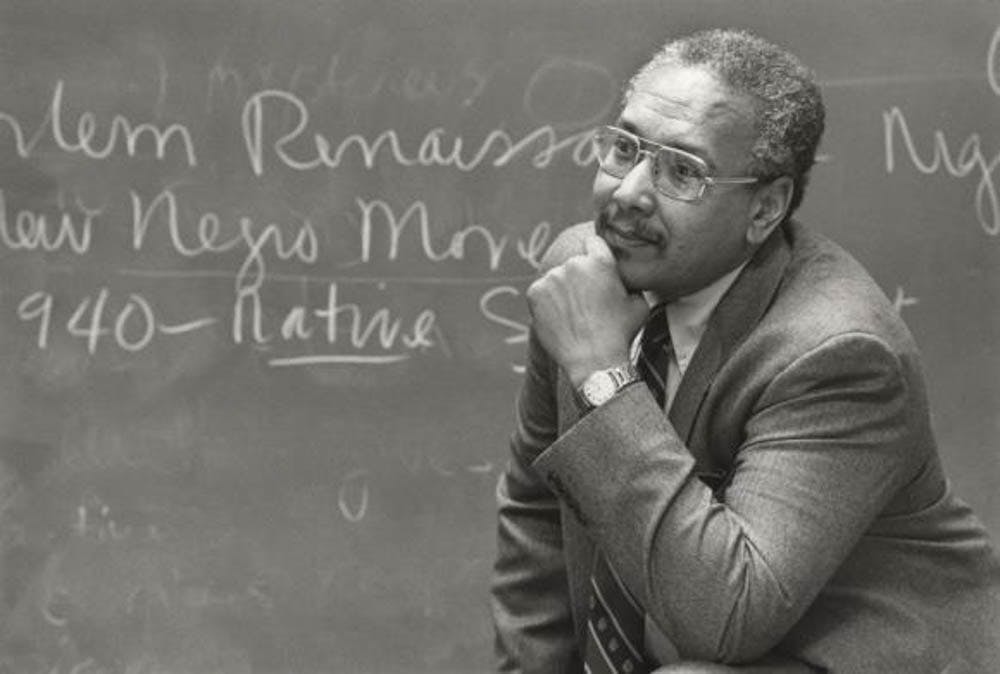The literary arts department hosted a memorial tribute Tuesday for Michael S. Harper, who joined the University as an English professor in 1970 and retired from the literary arts department in 2013. Harper passed away in May 2016.
“Over the course of his four and a half decades of teaching here, Michael Harper mentored generations and generations of students and writers,” said Peter Gale Nelson, professor and academic program director of literary arts.
Anthony Walton ’87, who graduated with a master’s degree in poetry, was among the students profoundly impacted by Harper’s guidance. Walton has become a writer and poet himself and returned to campus to address a small crowd of Harper’s friends and colleagues at the John Hay Library. Walton was first exposed to Harper’s poetry in a textbook he had his junior year of high school. The inclusion of African American culture in Harper’s poetry made a lasting impression on Walton’s conception of the art form, he said.
Harper believed the poet “is someone who keeps the truth alive until people are ready for it,” Walton said.
An example of this preserved truth includes Harper’s poem about the Algiers Motel incident. On July 25, 1967, during the 1967 Detroit riot, the annex of the Algiers Motel was seized by the authorities, following a report of a gunman. Three black civilians were murdered and an additional nine people were beaten by the Detroit Police Department, the Michigan State Police and the Michigan Army National Guard. A film about the incident titled “Detroit” is set to come out this summer.
Harper “wrote his poem about this incident in the late ’60s. Now, 50 years later, the nation is ready to start thinking about it,” Walton said.
Robert Stepto, professor of English and African American studies at Yale and lifelong friend of Harper, also came to the memorial tribute to say a few words about his friend and colleague. Together, Stepto and Harper co-edited “Chant of Saints: A Gathering of Afro-American Literature, Art, and Scholarship.” Stepto met Harper in 1969: “We had many good times together,” he said. “It is abundantly clear that Michael fell into (the category of) ‘the speech that would have some influence on the world,’ as (Harper) called it.”
His work has been honored with fellowships, honorary degrees and an appointment as the first poet laureate of Rhode Island, as well as prizes including the Robert Hayden prize, the Black Academy of Arts and Letters prize, the Melville-Cane Award and the 2008 Robert Frost medal for lifetime achievement, Stepto added.
“Michael Harper’s poetry is infused not only with the rhythms of music but also with an eye and an ear attentive to history and current events,” Nelson said. “He used poetry to foreground terrible realities that have necessitated many transformations for and within this nation — realities that include cultural and political racism, ongoing struggle for equality and a never-ending need to bear witness to our collective past and, in doing so, to construct the basis for a better, more just future.”
The McCormack Family Theater hosted a follow-up event to gather students, faculty and friends to honor Harper with a poetry reading accompanied by music.





